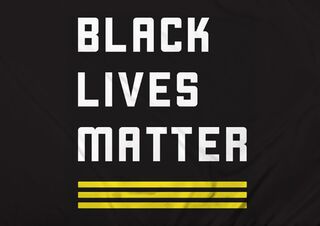Psychology
The Psychology of "All Lives Matter"
Group-level perceived ostracism and the BLM movement.
Posted June 24, 2020 Reviewed by Gary Drevitch
The Black Lives Matter movement is an organization across the U.S., Canada and the United Kingdom, whose aim, according to its website, is to "eradicate White supremacy and build local power to intervene in violence inflicted on Black communities..."
What I have always found a bit surprising is why the name itself seems to offend so many people. If I were to say "Ketchup matters" after biting into a burger, I would not be met with a chorus of angry people proclaiming "All condiments matter." Replying as such would lead to serious concerns about your general relationship with condiments. To up the ante in seriousness, if I said "murder is important," responding with "all crimes matter" would be an incredibly strange reply, met with even stranger looks.
Yet, when it comes to Black Lives Matter as a title many people seem to almost presume that it implies that the lives of White people don't matter. It just strikes me as all very, well, defensive and fragile.
At the individual level, there is so much research on how feeling and being left out/excluded can take a drastic toll on people emotionally and cognitively. It also increases aggression. It is essential to being a fully happy, functioning person that we feel connected to other people.
One of these studies not only randomly assigned participants to be left out or included during a game, but also to either then be in control or not in control. In the condition in which people had control, there was less aggression following exclusion.

It is highly likely that many White people are so upset by the BLM title in part because they feel that it excludes them, but also because they feel a lack of control over the situation.
Both parts of this require some serious unpacking on the part of people who feel offended by Black people basically saying their lives matter. First, why is it that you feel so excluded by this statement? They are right, aren't they? Saying a segment of lives matter has nothing to do with saying other lives do or do not matter. Second, what is it that threatens your sense of control so deeply? What is the fear that drives this (perceived) sense of exclusion into such often hostile spaces?


